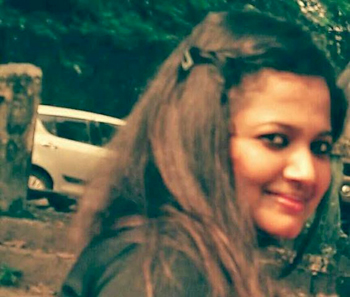Kolkata, Mar 1: West Bengal Criminal Investigation Department (CID) on Tuesday night arrested a leader of Bharatiya Janata Party (BJP)'s women's wing, BJP Mahila Morcha, in connection with a recently busted child trafficking racket in north Bengal, officials said.
 According to reports, acting on inputs, a special team of CID booked BJP Mahila Morcha's state general secretary Juhee Chowdhury from Batasi area near India-Nepal border under Kharibari Police Station limits in West Bengal's Darjeeling district.
According to reports, acting on inputs, a special team of CID booked BJP Mahila Morcha's state general secretary Juhee Chowdhury from Batasi area near India-Nepal border under Kharibari Police Station limits in West Bengal's Darjeeling district.
A senior CID official said that the BJP leader is being taken to Siliguri for further interrogation and she is likely to be produced before a local court on Wednesday.
Few days earlier, CID unearthed a north-Bengal based child trafficking racket in Jalpaiguri district and held three persons in connection with the case.
After starting probe into the matter, the CID charged BJP leader Juhee Chowdhury for her alleged role in aiding the child trafficking racket, which reportedly smuggled toddlers and newborns to other states in India and several other countries.
Since the racket was busted, Juhee Chowdhury went untraceable and finally arrested at around 10:45 pm. on Tuesday.
"Several others, including few doctors, are under our scanner in connection with the racket and they will be caught very soon if their links with the child smuggling racket are proven," a CID official said.





Comments
Any party or org, built on wrong, false, anti social values, then it will have all sorts of evil practices.
Its strength is illiterates in majority,
But it can never last for ever. It will have a saturation point, then the society can understand its false principles which are unhealthy to the society.
Naren is absconding... lame, lol, rofl
Naren is also on run...hahahhahah
Namo....Namo... Namo.....Achi din
Bharo Jail Party
Please look for kotian also he also might be a part of that
NAMO ki jai hahahahahaha
Add new comment